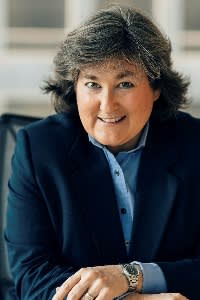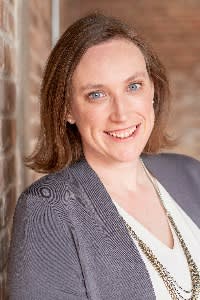When Erika Karp began her MBA in 1989, the time period “sustainable development” experienced hardly entered the company lexicon — permit on your own the organization faculty curriculum.
But even now, with sustainability at the top of the commercial agenda, Karp — who went on to located the effect expense group Cornerstone Funds — thinks organization educational facilities should do much more to combine social and environmental subjects into their programs.
She claims just one element of her Columbia Business Faculty MBA was hugely appropriate to her perform in sustainable finance, even again then. “One of the very best programs was known as controlling innovation,” recollects Karp, who now functions as chief effect officer at Pathstone, the US household place of work that this 12 months acquired her business. “The time period the professor used was ‘frame-breaking change’. And what I noticed in the entire world of sustainability and effect investing was most likely body-breaking adjust.”

She argues that ESG (environmental, social and governance) investing is an substitute lens via which to appraise possible investments. “This is a new paradigm,” she claims. “It’s about pragmatism and applying an improved analytical course of action to understand investing.”
Like Columbia, UCLA Anderson Faculty of Administration provided no sustainability-targeted programs when Dave Gallon embarked on his MBA there in 2001. But for Gallon, now chief running officer at MoceanLab — a Los Angeles-based sustainable mobility laboratory introduced by carmaker Hyundai in 2019 — the school’s typical solution matched his motivation to go after environmental and social justice professionally.
“I chose it since of their openness to the exploration of new subjects,” he claims. He also appreciated the faculty since, as opposed to those that prioritise expense bankers whose salaries enhance their rankings, it was fascinated in accepting college students from all walks of lifetime (Gallon was previously in instruction).
In his functions course, Gallon was launched to the principle of sustainable profitability. “You have to pull environmental impacts into the being familiar with of a strategy that is crafted for long-time period returns,” he claims. “And whether or not in finance, accounting or strategy, the professors would carry the plan of ethics into the dialogue.”

Jenny McColloch, who is now chief sustainability officer at rapid-foodstuff chain McDonald’s, was drawn to Yale Faculty of Administration — where she embarked on her MBA in 2010 — since of its emphasis on cross-disciplinary imagining, notably via the joint management-setting diploma it introduced in 1982.
“I didn’t do the joint diploma since I previously experienced an environmental management master’s and bachelors diploma,” points out McColloch. “But I chose that faculty since of its relationship between the Faculty of Administration and the Faculty of the Setting.”
The innovation system content material has proved hugely appropriate to McColloch’s perform at McDonald’s, she claims, citing the company’s efforts to endorse much more sustainable beef creation practices.
“We have the possibility via our world wide community to check different programmes with farmers and ranchers in different nations around the world and figure out what is scalable,” she claims. “It’s innovation in a world wide community and via the lens of sustainability.”
By the time McColloch began her MBA, the organization faculty landscape experienced shifted substantially from the times when Karp and Gallon have been college students. And due to the fact then, environmental sustainability and social entrepreneurship have produced their way into the curriculum, typically pushed by college student demand from customers.
Nevertheless, though educational facilities have launched much more system content material on sustainable organization, several are provided only as electives. The problem has been integrating subjects these as biodiversity and social organization into main programs, these as functions and finance.
This is significant, argues Karp, who claims that educational facilities ought to be instructing sustainability in a way that assists shift capitalism in the direction of a much more regenerative, inclusive economic design. “You can not do that with out every single of the [main MBA] disciplines,” she claims.
Gallon also thinks educational facilities ought to do much more to assist college students make connections between main disciplines and social and environmental things.
“If you’re a finance human being likely to perform on Wall Street, you require to understand that the organizations you’re investing in are multi-faceted, human organisations,” he claims. “Not plenty of men and women consider that holistic look at.”
Faculties are also remaining criticised for curriculum content material that is nevertheless based about the ‘shareholder primacy’ design of capitalism and the pursuit of small-time period returns rather than the long-time period strategies required to address challenges these as inequality or climate adjust.
Karp thinks educational facilities that are unsuccessful to move away from this solution are putting their have organization design at possibility, specially as technologies can make it possible to do the teamwork and networking that are essential parts of the organization faculty working experience.
“Those issues are a lot easier to do these times outside the house the faculty setting,” she claims. “So if schools’ imagining is outmoded, then they will develop into irrelevant.”





More Stories
The Ministry of Finance for the first time paid income on Eurobonds in rubles
Russia to make dollar bond payments in roubles after US blockade
Russia to make dollar bond payments in roubles after US blockade